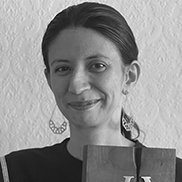
She was partner and chief operating officer with QARA Consulting, a firm owned and run by young Afghans in Kabul which she co-founded in 2010. She worked as an analyst for the Free and Fair Elections Foundations, and as a journalist for BBC Afghanistan. As the Country Director of the Open Society Foundation Afghanistan between 2014 and 2017, she carried out activities supporting civil society and the media in peacebuilding, human rights, and promoting tolerance. In 2017, she was selected by the World Economic Forum as Young Global Leader. Starting from 2017 until 2018, she worked as a Senior Advisor to the Afghan President on High Development Councils and in this capacity, coordinated the prioritization of development projects and programs for high level decision-making. Between 2018-2019, she worked as a Senior Advisor for UNESCO Afghanistan and acted as Deputy on the National Security Council for Peace and Civilian Protection and from 2019 until 2022, she acted as the Chairperson of the Afghanistan Independent Human Rights Commission, recently abolished by the Taliban. After the Taliban took power in August 2021, she had to leave her country just as the scores of nationals of Afghanistan.
Her writing has appeared in the international and Afghan media, including the Washington Post, Newsweek, Al Jazeera, and CNN, as well as in academic journals. She is currently an Academy Fellow in Human Rights at the Queen Elizabeth II Academy for Leadership in International Affairs, Chatham House in the United Kingdom as well as working to launch a new human rights organization focused on Afghanistan.
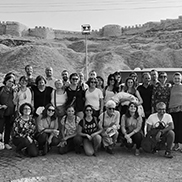
Thanks to its meticulous work, experience, and know-how on documenting torture and the treatment of torture survivors, it has almost become a school in its own right. Through its advocacy and reports seeking to activate the existing mechanisms for combating torture and to establish new mechanisms at the local and international level, it has become one of the key organisations worldwide spearheading the efforts in preventing torture, inspiring numerous human rights organisations and international bodies.
It has played a pioneering role in the preparation of ‘the Manual on the Effective Investigation and Documentation of Torture and Other Cruel, Inhuman or Degrading Treatment or Punishment’, commonly known as ‘the Istanbul Protocol’, adopted in 1999. It has played a pivotal role in the design and implementation of training programmes for the investigation, documentation, and prevention of torture cases against health and legal professionals in Turkey and across the world. In 2008, thanks to contribution from the Association of Forensic Medicine Specialists and the Turkish Medical Association, it published ‘the Torture Atlas’, offering a medical documentation of torture cases. Through the centers it has established to date in Ankara, Diyarbakır, İstanbul, İzmir, Cizre and Van, it has provided treatment and rehabilitation services to over 20 thousand individuals subjected to torture and ill-treatment; contributing to the physical, psychological, and social well-being of torture survivors and their relatives facing trauma. Since 2000, it has been actively working on coping with collective trauma in light of the principles ‘truth, justice, and reparation’; conducting training programmes, panels, and symposia on the topic in Turkey and abroad. Meanwhile, it continues to lead the efforts for the periodical review of ‘the Istanbul Protocol’.
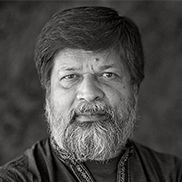
Published globally, Alam’s work has been exhibited in leading galleries like MOMA and Tate Modern. A recognised public speaker he has spoken at Oxford, Cambridge, Harvard and Stanford Universities. He is a professor at Sunderland University in the UK and RMIT in Australia. He lives and works in Bangladesh in institutions he founded, Drik Picture Library and Pathshala South Asian Media Institute.
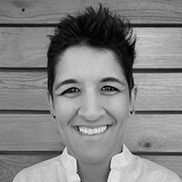
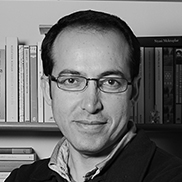
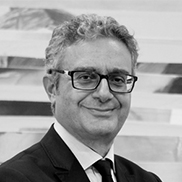
He gives lectures about human rights activism, activism and modern art, business and human rights, and international human rights regime at the master and PhD levels. His six published books are also on these topics. Apart from the aforementioned subjects, he works on confronting the past, international conflicts and restorative justice fields. He took part in Harvard University Negotiation Project and Princeton University international crimes themed projects. In 2001, he was awarded by the UN Refugee Agency (UNHCR) a Certificate of Appreciation for his contributions to the refugee rights in Turkey. He was a member of the international jury for "Human Rights in Cinema," which was held at the Istanbul International Film Festival for the first time.
He is a founding member of Helsinki Citizens' Assembly, Amnesty International-Turkey, Human Rights Foundation of Turkey, and History Foundation among several other non-governmental organizations. He is also a member of the Istanbul Bar Association.
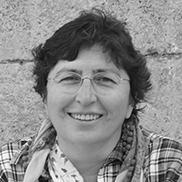
As a founding member of TİHV, she is on the organization council of the “Turkey Human Rights Movement Conference” and continues her position as a TİHV member of the board. She is the editorial director of the Toplum ve Bilim Magazine (Society and Science Magazine) since 2017.
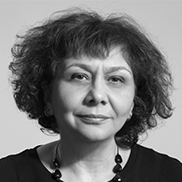
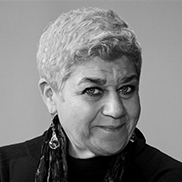
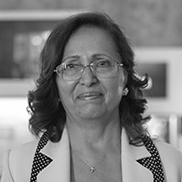
Born to an Armenian family in Silopi, southeastern Turkey, Rakel moved to Istanbul with tens of kids from Anatolia in order to receive education in Armenian Schools. She met with Hrant Dink at Camp Armen, where Armenian children orphans or those away from their families would spend their summers. Rakel and Hrant got married and became managers at Camp Armen in the following years until the property was seized by the state.
Following the death of Hrant Dink in January 2007, Rakel devoted her life to preserving her husband’s legacy. She established the Hrant Dink Foundation in 2007, with a mission to protect and uphold human rights in Turkey, preserve the identity and culture of minorities, address polarization, and normalize Turkish-Armenian relations. Rakel continues to be an optimist and maintains that despite the various challenges that she was forced to overcome throughout her life, she has been surrounded by love and kindness. She is hopeful for the future of Turkey and finds joy in her work and her family.
